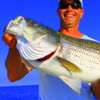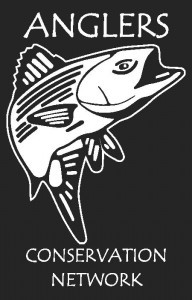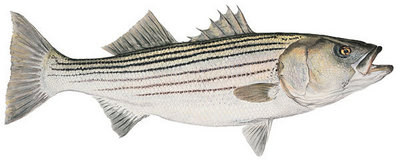NOAA heard our cry for fisheries management data that is based upon sound science and angler input. Not just another acronym that anglers need to know, but the Marine Recreational Information Program is something we all need to acknowledge and be a part of.
If you are an angler that is concerned about the way our fish are being managed and regulated, and would like to be a pro active part of the solution, then listen up. Recently, the folks from the Washington D.C. office of NOAA reached out to a handful of Jersey anglers to get feedback on improving the way they collect and report data. And I am glad they are asking us up front, because there are an estimated 15 million saltwater anglers taking 100 million fishing trips per year!
We clearly have the power to influence the way catch data is collected and fish stocks are assessed. Up to this point, recreational fisherman have played a major role in developing and implementing the MRIP process. The MRIP team includes charter boat operators, fishing club leaders, recreational fishing advocates and fish conservation groups.
About a dozen fisherman showed up and all were anxious to hear what NOAA had to say about "doing a better job of making your catch count". Ironically, we met out on Sandy Hook at the Howard Marine Lab that we are all trying to prevent from closing down. The group was comprised of boat owners, surf fisherman, small charter boat skippers and retired guys that care.
NOAA's D.C. based MRIP team ran the casual, informative and interactive discussion. We talked about how fishing effort is surveyed by phone and by mail using the new angler registry and also about how catch data is collected out in the field. Oddly enough, your "skunk" days play as much of a role in effort as your successful days. Data collection was a contentious part of the conversation as many in the group have never been "intercepted" on the beach or at a dock.
Personally, I have been stopped several times over the years and was briefly interviewed regarding the specifics of what we caught, released, and inspected, measured what we kept. Obviously guys that are off the water at 8 am or fishing at night had never met a survey taker, but that's going to change. The program is shifting gears and sending the surveyors out at different times, instead of just showing up at a launch ramp at 3pm on a Saturday and walking boat to boat.
Another major bone of contention is figuring out the way NOAA counts the total number of fish caught. Fisherman brought up the fact that in the past fish numbers were reported when not a single boat left the dock due to a hurricane etc. There are dozens of issues that need to be improved upon, weather and natural impacts included.
The biggest issue between fisherman and NOAA is clearly trust, and with the recent Black Sea bass blunder/closure drama this is going to be hard to rebuild. NOAA gets it, and understands that fisherman need to feel that they are a part of the solution and that NOAA "has there backs". Obviously, with NOAA sitting in front of us we were all compelled to talk about Striped bass, the number one sought after gamefish in the mid Atlantic. All of us at the table lived through the rise and fall of this vital species and want to know what they are planning to do to prevent it from happening again. How could angler information be used to head off another collapse?
Fisherman are deeply concerned that NOAA and the ASMFC would not be able to use the collected data fast enough and demand a reactive solution instead of a proactive one as in the past. With the MYCO disease in the Chesapeake, poor spring spawns and badly depleted forage fish levels its clear that our stripers are in trouble. On top of this, boatloads of relentless fisherman with a "catch, fillet, eat" mentality continue to enjoy jerseys "slay fest of the breeders" off the Jersey shore each spring. These 20 pound plus fish are the very backbone* of the mid Atlantics entire striper fishery. We all hope that the MRIP team will come back to striper fisherman for suggestions on starting a Striper specific data collection program that will help to predict and prevent catastrophe.
One thing is for sure, there are no quick fixes in fisheries management and the skeptics will have a field day when things get muddy, but at least NOAA is moving in the right direction! They are diving into this headfirst and recreational anglers, if they embrace this program, will be the ultimate winners. This is going to be an evolving process, but with today's improved networking and internet abilities it has the potential to be big. As anglers, we really need to engage and participate because we see first hand what goes on out on the water. We are NOAA's eyes and ears and can be in a lot more places than they can.
NOAA's sincere plan to engage with the recreational angling community will probably not appeal to the skeptical members of the "fishing tea party". Even though this MRIP plan will eventually improve the collection of data, these folks strongly believe that any regulation or government involvement in fishing is unacceptable, and dread the thought of actually working together with the feds to create a sustainable recreational fishery for the future. Personally speaking I feel that we currently have no choice, and fisheries must be regulated because, as history has proven over and over, humans will remove every last fish and then scream about how they were mismanaged when they are all gone.
You can learn more about the details of this program online at www.countmyfish.noaa.gov. Additionally, it's important to note that New Jersey saltwater anglers can voluntarily submit catch reports online to our own Fish & Game fisheries biologists. Many anglers are unaware of this free and easy online form that lets you provide our own biologists with your daily fishing reports. This information is vital for management of public resources and in the end, helps to make sure that enough money is allocated to helping sportsman. Visit: http://www.state.nj.us/dep/fgw/marinesurvey.htm




